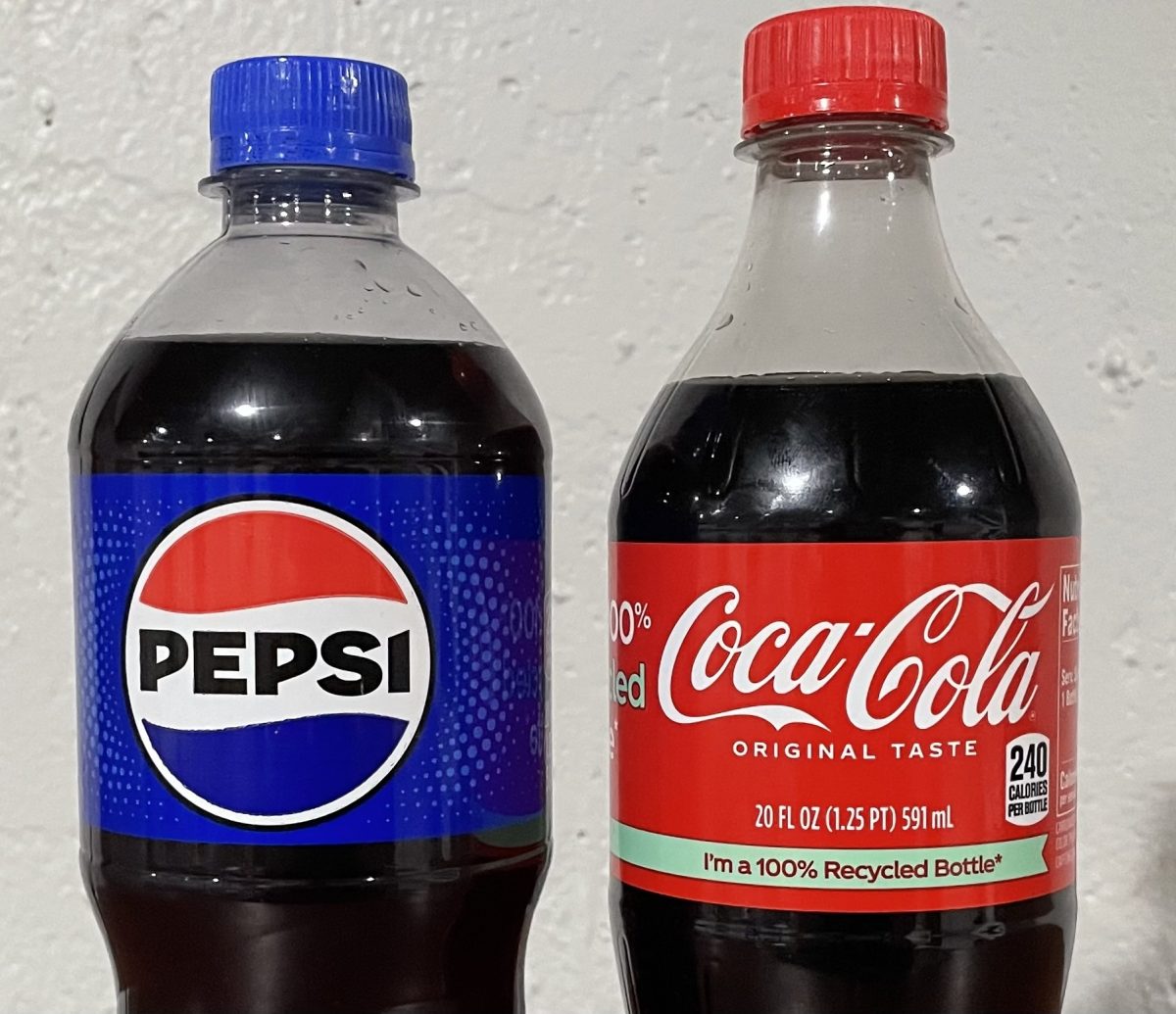Over the course of the 2022-2023 school year, members from ECOS planned to restore the shoreline of Butler Lake to prevent further damage through erosion and invasive species. However, the planting of high quality native plans, which is the key part of the restoration solution, wasn’t able to start until the summer of 2023.
The ECOS Club is planting high quality native plants around Butler Lake to prevent further damage to the shoreline from invasive species and to combat erosion. Planting is the culmination of the restoration project that includes identifying problems, researching solutions, and planning action steps.
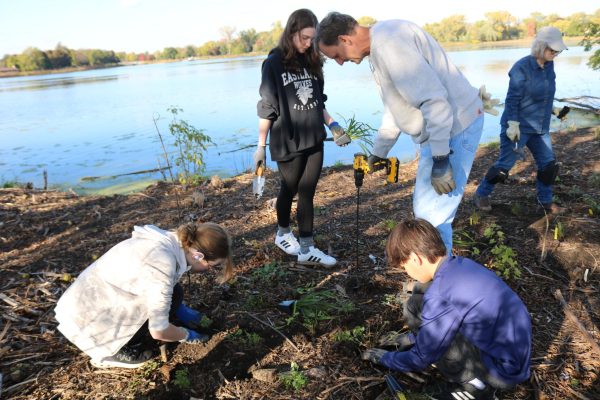
What is ECOS?
ECOS is a student-centered environmental club. Every year, members spend the first few months of the school year researching a local environmental problem and creating a project that would help solve that problem.
Senior Ameila Scanio, current vice-president, has been a member of ECOS for two years. She discussed previous projects done by this club to better the environment. For example, a few years ago, ECOS tried to get LHS more dependent on solar energy.
“The fountain in the courtyard is run by some of the solar panels that ECOS put up on the roof,” Scanio said.
For the 2022-2023 school year, members had their eyes set on restoring Butler Lake.
Problems
ECOS learned of the problems Butler Lake has been facing after reading the 2015 Butler Lake report, which was prepared by the Lake County Health Department.
Through studying the report, students discovered that the shoreline of the lake had a massive erosion problem, which meant the rich soil at the shore was being washed into the lake.
This is detrimental to both the lake and the land around it. The soil reduces water quality for organisms in the Butler Lake habitat.
“We’ve lost 3 to 5 feet in some places of shoreline, and it’s threatening the path in our practice football field,” said Environmental Science teacher and ECOS advisor Dr. Jennifer Kahn.
To keep the soil from being washed away, ECOS removed buckthorn, an invasive species, that surrounds Butler Lake, and replaced it with native plants with stronger roots.
Senior Sam Powell, a recent ECOS member of the month, said, “The native plant roots go a little deeper so they hold the soil together and [as a result there is] less weathering throughout the whole shoreline area.”
Not only does planting native plants benefit the lake’s shoreline, but it also provides a high quality habitat for pollinators, birds and other wildlife.
In addition to the problem of erosion, club members learned about another problem found in Butler Lake: nutrient pollution. The overabundance of nutrients in the lake leads to an algae bloom.
Returning Co-president Senior Athelea Herman explained the impact of eutrophication, a process in which the algae in the lake dies and uses all the oxygen in the water.
“A goal was to prevent [eutrophication] from happening again by preventing erosion and adding a native plant buffer [that] filters out all the excess nutrients,” Herman said.
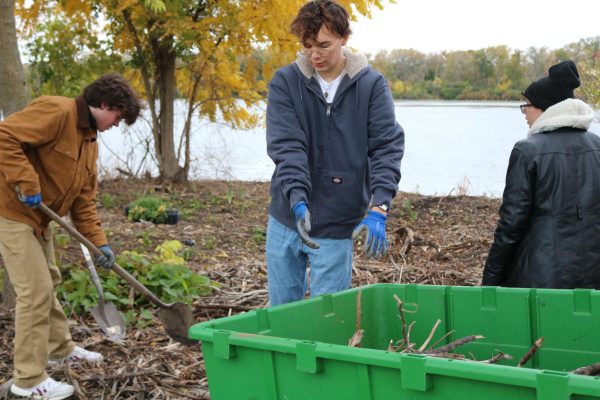
Planning
Early in 2022-23, “the [ECOS] students began by investigating the [Butler Lake] issue,” said Dr. Kahn. “They met with dozens of experts to try to understand what the issues were and what the options were to fix it.”
These students set out on a mission to save the Butler Lake shoreline. Members researched and became experts in local plants and their benefits and beauty, and they became experts in native plants and the other natural processes happening around the lake.
In addition to creating detailed plans, ECOS members applied for grants. The club also sponsored fundraisers and solicited donations. ECOS secured a total of $25,000 to restore the shoreline.
The students presented their findings and their plans to the D128 Board of Education.
Members of the D128 school board recognized the thorough planning and research of ECOS as part of the reason the club has gained support for the restoration project.
“When people see kids who are passionate… and actually know what they’re talking about, they tend to be more willing to support [them],” Herman said.
Dr. Kahn said she was impressed with the level of initiative and how deeply the students went into researching and formulating a plan and getting approval for the project.
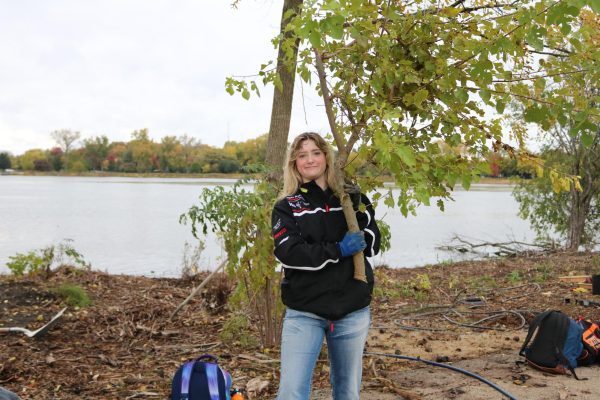
Planting
Finally, in the summer of 2023, after uprooting the invasive buckthorn and creating space for the new native plants, ECOS was able to begin the hands-on planting work. Even though participants had planned to begin planting in March 2023, due to various complications, they had to push back their plans.
“[Planting] got pushed and it ended up being a good thing,” said Dr. Kahn.“We just needed to get the roots into the ground. So, when spring comes around, they’ll grow again.”
Even though they were the driving force behind the project, ECOS did not complete this high scale project without external help.
“We were able [to] leverage the help of a lot of different groups that we didn’t first consider on campus,” Kahn said.
Alongside ECOS, the National Honor Society, and other community organizations have been taking part in planting. In addition, classes have participated including AP Environmental Science, Freshman Health and Outdoor Education.
With winter on its way, the planting phase of the project concluded on Oct. 20, leaving ECOS looking forward to spring.
“I think that the best part of this project will be when everybody starts seeing the plants coming in in the spring and they can actually see what a huge difference they made in terms of just how beautiful the shoreline looks,” said Dr. Kahn.



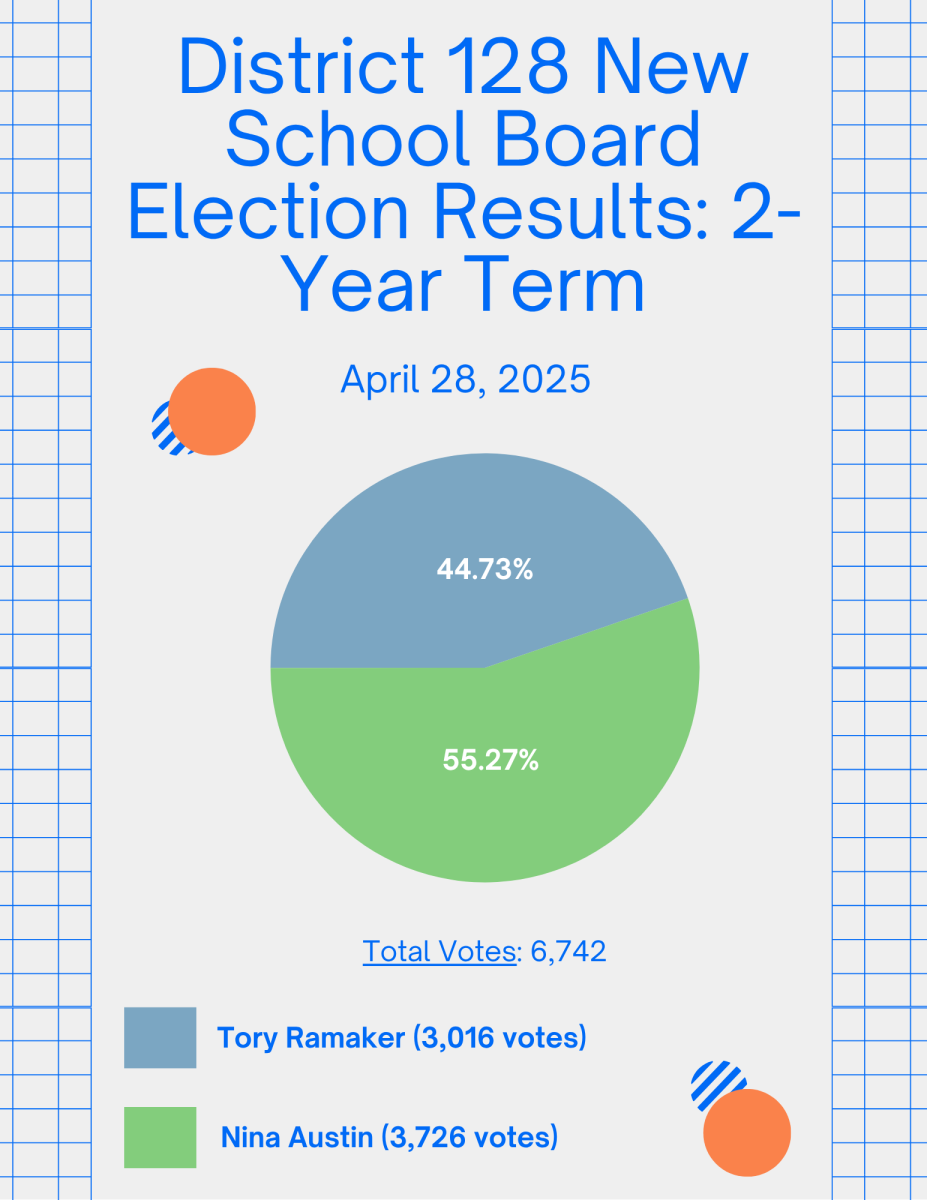
![Mr. Abullh Ali, manager/assistant, helps open Queen Yemeni Coffee in downtown Libertyville at 606 North Milwaukee Ave. With the help of employees such as manager and LHS senior Yousef Taha, they are able to bring the Yemeni and Ethiopian culture to Libertyville by using their Queen spices, cinnamon and cardamom in their drinks such as Adani Chai, which is inspired by Sheda, the Queen of Yemen and Ethiopia. “The history of our coffee [is] a long history and we believe that Yemen and Ethiopia started the coffee and we are bringing something unique to the community,” Mr. Ali said.](https://www.lhsdoi.com/wp-content/uploads/2025/04/Photo-1-1200x800.jpg)

